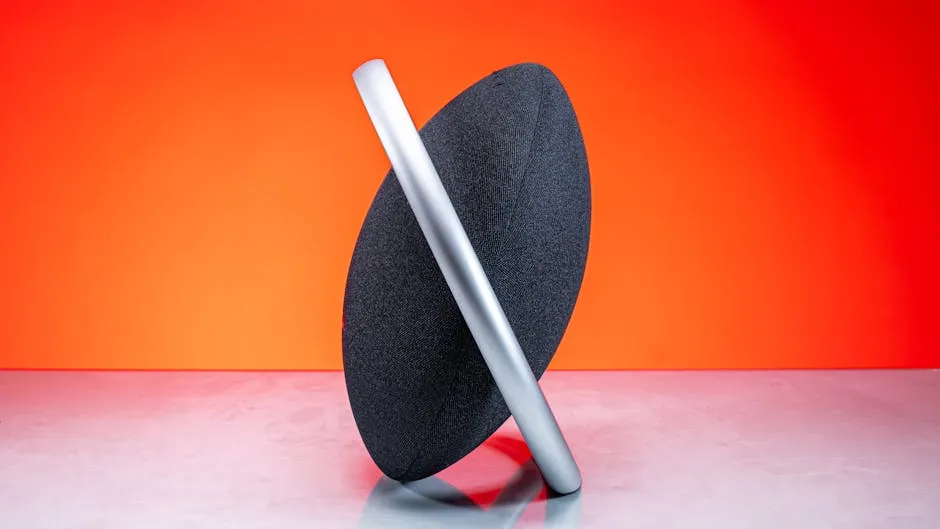· Ricardo Batista · 15 min read
Fix Google Meet Audio Not Working Quickly
Struggling with Google Meet audio not working? Learn practical solutions to troubleshoot and fix audio issues in Google Meet.

Battling with sound troubles throughout your Google Meet get-togethers could be irritating & disruptive. In this piece, we’ll investigate typical reasons for sound problems in Google Meet & give useful answers for assisting you with investigating & settling these issues viably. Stick around to guarantee your virtual gatherings run easily without any sound hiccups.
Key Takeaways
- Check your hardware components like microphone and speakers for any issues.
- Clear browser cache and cookies to resolve common audio problems in Google Meet.
- Utilize the Google Meet Help Center for comprehensive troubleshooting guides.
- Regular system maintenance can prevent future audio issues during meetings.
Common Causes of Audio Issues in Google Meet
Hardware Problems
One of the most frequent reasons for sound difficulties in Google Meet is connected to equipment. Here are some actions to resolve hardware problems:
Verify Your Mic & Speakers: Guarantee that your microphone and speakers are appropriately linked to your gadget. If utilizing an external mic or headphones, confirm it’s firmly connected.
Examine Your Equipment: Utilize the integrated audio configurations on your gadget to assess your mic & speakers. On Windows, you are able to accomplish this by navigating to
Settings > System > Sound. On macOS, go toSystem Preferences > Sound.Upgrade Drivers: Old drivers could lead to sound problems. Ensure your audio drivers are current. You can update drivers via the Device Manager on Windows or by utilizing third-party tools like Driver Booster.
Examine for Bodily Harm: Look over your gear for any bodily injury. If your mic or headphones are harmed, they might require replacement.
Software and Browser Issues
Software and browser settings can also lead to audio problems in Google Meet. Follow these steps to troubleshoot:
Upgrade Your Web Browser: Make certain you’re utilizing the newest edition of your internet browser. Google Meet functions optimally on Google Chrome, however it additionally supports different browsers like Firefox & Edge.
Wipe Out Temporary Files & Cookies: At times, getting rid of your web browser’s temporary files and cookies can fix audio problems. In Chrome, you can accomplish this by navigating to
Settings > Privacy & security > Clear browsing data.Inspect Web Browser Permissions: Guarantee your web browser has authorization to get your microphone. In Chrome, navigate to
Settings > Privacy & security > Site settings > Microphone& ensure that Google Meet is permitted to utilize your microphone.Turn Off Add-ons: Web browser add-ons could occasionally mess up Google Meet. Attempt to deactivate add-ons individually to check if any of them are the reason for the problem.
Network Connectivity
Examine Your Web Quickness: Utilize instruments like Speedtest to inspect your web speed. Google Meet necessitates a consistent web association for ideal execution.
Utilize a Cabled Link: If feasible, employ a wired Ethernet connection rather than Wi-Fi. Cabled connections are typically more steady & offer superior performance.
Reboot Your Wireless Device: At times, merely rebooting your wireless device can fix connection problems. Disconnect your wireless device, wait for a couple of seconds, then reconnect it.
Restrict Data Transfer Capacity: Guarantee that different gadgets or programs aren’t utilizing an excessive amount of data transmission. Close any superfluous applications or gadgets that could be utilizing your web association.
Meeting Reminders
To guarantee your gatherings operate effortlessly & participants arrive promptly, contemplate utilizing Meeting Reminders. Meeting Reminders is a Google add-on which automatically notifies attendees when they aren’t showing up on schedule. This could spare you the inconvenience of manually emailing latecomers & assist in preserving the progression of your meetings. Simply set up the add-on within your Google Calendar, & permit Meeting Reminders to handle the remainder.
By following these actions, you can successfully fix & resolve sound problems in Google Meet, guaranteeing a smooth & productive meeting experience. For additional advice on optimizing your Google Meet sessions, check out our Google Meet Settings guide.
Initial Troubleshooting Steps
Check Audio Settings in Google Meet
- Join a Google Meet Session: Start or join a Google Meet session.
- Get to Configurations: Tap on the three upright dots in the bottom-right area of the display & pick “Settings.”
- Examine Sound Preferences: In the “Audio” section, make certain the proper mic & speaker gadgets are picked. You can try out your mic by talking & watching the input level gauge.
- Adjust Volume: Make sure the volume is set to an appropriate level.
Verify System Sound Settings
On Windows:
- Open Sound Settings: Right-click the sound icon in the taskbar and select “Open Sound settings.”
- Inspect Input & Output Gadgets: Guarantee the proper input (mic) & output (speakers/headphones) gadgets are chosen.
- Test Your Devices: Use the “Test” button to check if the sound is working properly.
On macOS:
- Open System Preferences: Click the Apple menu and select “System Preferences.”
- Go to Sound Settings: Click on “Sound.”
- Check Input and Output Devices: Ensure that the correct input and output devices are selected.
- Test Your Devices: Use the “Test” button to check if the sound is working properly.
Restart Your Device
Sometimes, a simple restart can resolve many issues, including audio problems. Follow these steps:
- Save Your Work: Ensure that all your work is saved.
- Restart Your Device: Click on the Start menu (Windows) or Apple menu (macOS) and select “Restart.”
- Get back to the Gathering: After your gadget has restarted, join the Google Meet meeting again & see if the sound problem is fixed.
Meeting Reminders
To guarantee your gatherings operate effortlessly & participants arrive promptly, contemplate utilizing Meeting Reminders. Meeting Reminders is a Google add-on which automatically notifies attendees when they aren’t showing up on schedule. This could spare you the inconvenience of manually emailing latecomers & assist in preserving the progression of your meetings. Simply set up the add-on in your Google Calendar, & permit Meeting Reminders to handle the remainder.
By following these initial troubleshooting steps, you can effectively address & resolve audio issues in Google Meet. For more detailed guidance on optimizing your Google Meet experience, check out our Google Meet Settings guide.
Advanced Troubleshooting Techniques
Clear Browser Cache and Cookies
Clearing your browser’s cache and cookies can often resolve audio issues in Google Meet. Here’s how to do it:
In Google Chrome:
- Open Settings: Click on the three vertical dots in the top-right corner and select “Settings.”
- Navigate to Privacy and Security: Scroll down and click on “Privacy and security.”
- Erase Surfing Information: Tap on “Wipe browsing details.” Guarantee that “Treats & other location information” & “Stored pictures & records” are chosen.
- Clear Data: Click on “Clear data” to remove the cache and cookies.
In Firefox:
- Open Settings: Click on the three horizontal lines in the top-right corner and select “Settings.”
- Navigate to Privacy & Security: Click on “Privacy & Security” in the left-hand menu.
- Clear Data: Under “Cookies and Site Data,” click on “Clear Data.”
- Clear Data: Ensure that both “Cookies and Site Data” and “Cached Web Content” are selected, then click “Clear.”
Update or Reinstall Browser
Update Google Chrome:
- Open Settings: Click on the three vertical dots in the top-right corner and select “Settings.”
- About Chrome: Scroll down and click on “About Chrome.”
- Update: Chrome will automatically check for updates and install them. Restart the browser to apply the updates.
Reinstall Google Chrome:
- Uninstall Chrome: Go to your system’s settings and uninstall Google Chrome.
- Download Chrome: Visit the Google Chrome website and download the latest version.
- Install Chrome: Follow the installation instructions to reinstall Chrome.
Check for System Updates
• Ensuring your operating system is current can fix many problems, including audio issues in Google Meet. Here’s how to check for updates:
On Windows:
- Open Settings: Click on the Start menu and select “Settings.”
- Update & Security: Click on “Update & Security.”
- Check for Updates: Click on “Check for updates.” Install any available updates and restart your computer.
On macOS:
- Open System Preferences: Click on the Apple menu and select “System Preferences.”
- Software Update: Click on “Software Update.”
- Look for Upgrades: If enhancements exist, click “Upgrade Presently” to set them up. Restart your machine if required.
Meeting Reminders
To guarantee your gatherings operate effortlessly & participants arrive promptly, contemplate utilizing Meeting Reminders. Meeting Reminders is a Google add-on which automatically notifies attendees when they aren’t appearing punctually. This could spare you the inconvenience of manually emailing latecomers & assist in preserving the progression of your meetings. Simply install the add-on within your Google Calendar, & permit Meeting Reminders to handle the remainder.
By following these sophisticated troubleshooting methods, you can successfully tackle & fix audio problems in Google Meet. For additional advice on enhancing your Google Meet experience, check out our Google Meet Settings guide.
Specific Device Troubleshooting
Windows Devices
If you’re experiencing audio issues on a Windows device during a Google Meet session, follow these steps:
- Inspect Audio Configuration: Right-tap the sound symbol in the taskbar & choose “Open Sound settings.” Guarantee the proper input (mic) and output (speakers/headphones) gadgets are picked.
- Operate the Problem-solver: Proceed to
Preferences > Update & Protection > Fix Issues > Extra problem-solvers. Pick “Listening to Audio” & run the problem-solver. - Upgrade Sound Drivers: Launch Device Manager by right-clicking the Start button & choosing “Device Manager.” Expand the “Sound, video & game controllers” section, right-click your audio device, and select “Update driver.”
MacOS Devices
For MacOS users, here are the steps to troubleshoot audio issues in Google Meet:
- Inspect Audio Configuration: Tap the Apple menu & choose “System Preferences,” then click “Sound.” Verify the proper input & output devices are picked.
- Reset PRAM/NVRAM: Occasionally resetting the PRAM/NVRAM could fix audio problems. Reboot your Mac & hold down the
Option + Command + P + Rkeys until you listen to the startup noise twice. - Upgrade macOS: Make certain your macOS is current by navigating to
System Preferences > Software Update& installing any accessible upgrades.
Mobile Devices
If you’re using a mobile device for Google Meet and experiencing audio issues, follow these steps:
Android:
- Inspect Application Authorizations: Proceed to
Configurations > Programs > Google Meet > Permissions& make certain the microphone authorization is activated. - Clear App Cache: Go to
Settings > Apps > Google Meet > Storageand tap “Clear Cache.” - Refresh the Application: Launch the Google Play Store, search for Google Meet, & make certain the app is modernized to the newest release.
iOS:
- Check App Permissions: Go to
Settings > Google Meetand ensure the microphone permission is enabled. - Reboot the Gadget: Occasionally a straightforward reboot can fix sound problems. Press & hold the power button & slide to turn off, then switch the device back on.
- Update the App: Open the App Store, search for Google Meet, and ensure the app is updated to the latest version.
Meeting Reminders
To guarantee your gatherings operate effortlessly & participants arrive promptly, contemplate utilizing Meeting Reminders. Meeting Reminders is a Google add-on which automatically notifies attendees when they aren’t showing up punctually. This could spare you the inconvenience of manually emailing latecomers & assist in preserving the progression of your meetings. Simply set up the add-on within your Google Calendar, & permit Meeting Reminders to handle the remainder.
By following these particular device troubleshooting measures, you can successfully tackle & fix audio problems in Google Meet. For additional advice on enhancing your Google Meet experience, check out our Google Meet Settings guide.
Using External Tools and Resources
Google Meet Help Center
The Google Meet Assistance Hub is an outstanding asset for resolving sound difficulties. It offers thorough instructions & troubleshooting measures for frequent problems. Here’s the way to utilize it:
- Visit the Help Center: Go to the Google Meet Help Center.
- Look for Your Difficulty: Utilize the search bar to enter keywords connected to your sound issue, like “sound isn’t functioning properly.”
- Adhere to the Instructions: Scan through the search outcomes & obey the detailed directions offered to fix your problem.
Community Forums and Support
Community forums could be a useful asset for resolving audio difficulties in Google Meet. Platforms such as Reddit & Google’s own support communities permit individuals to exchange their encounters and remedies. Here’s the way to utilize these assets:
- Reddit: Go to Reddit’s r/gsuite & look for discussions connected to Google Meet sound troubles. You could also ask your own query & receive suggestions from the group.
- Google Support Forums: Head to the Google Meet Community & look for comparable problems. Interact with different users and Google specialists to discover answers.
Third-Party Troubleshooting Tools
- Driver Booster: This program assists in maintaining your drivers current, which could fix numerous hardware-related sound problems. Get it from IObit & follow the setup guidelines.
- CCleaner: This program can assist clear cache & cookies, which could potentially be leading to audio problems. Get it from CCleaner & utilize it to tidy up your computer.
- Speedcheck: Utilize Speedtest to examine your web link velocity. A consistent link is vital for ideal Google Meet execution.
Meeting Reminders
To guarantee your gatherings operate effortlessly & participants arrive promptly, contemplate utilizing Meeting Reminders. Meeting Reminders is a Google add-on which automatically notifies attendees when they aren’t showing up on schedule. This could spare you the inconvenience of manually emailing latecomers & assist in preserving the progression of your meetings. Simply set up the add-on in your Google Calendar, & permit Meeting Reminders to handle the remainder.
By utilizing these outside tools & resources, you can successfully troubleshoot & fix audio problems in Google Meet. For additional advice on enhancing your Google Meet experience, check out our Google Meet Settings guide.
Preventive Measures for Future Meetings
Regular System Maintenance
- Upgrade Programs & Drivers: Frequently look for updates for your operating system, web browser, and sound drivers. Keeping your software current ensures compatibility & optimal performance.
- Perform Virus Checks: Utilize trustworthy anti-malware programs to inspect your machine for harmful software & infections that might impact your device’s functionality.
- Get rid of Cache & Temporary Stuff: Every so often clean out your browser cache and temporary files to free up system resources. Tools like CCleaner can help automate this process.
Best Practices for Audio Setup
Following best practices for audio setup can prevent many common issues. Here are some tips:
- Utilize High-Quality Equipment: Put money into a nice microphone & headphones. Make certain they work with your gadget and satisfy your sound requirements.
- Inspect Links: Prior to initiating a gathering, verify that every sound gadget is appropriately attached. Guarantee that wires are safely connected & that remote gadgets are accurately matched.
- Examine Sound Configurations: Utilize the audio setups in Google Meet & your operating system to evaluate your mic and speakers prior to the gathering’s commencement. This could aid in identifying and resolving problems beforehand.
Scheduled Equipment Checks
Frequently planned gear inspections could assist in recognizing prospective difficulties prior to them disrupting your gatherings. Here’s the way to execute them:
- Make a List: Construct a list of all the sound gear & configurations you have to confirm prior to every gathering. This could involve verifying mic volumes, speaker output, & ensuring all devices are linked.
- Establish Alerts: Utilize resources like Meeting Reminders to create notifications for routine gear inspections. Meeting Reminders can additionally assist in guaranteeing that participants arrive promptly by automatically notifying them when they’re tardy.
- Carry Out Fake Gatherings: Occasionally do fake gatherings to test your arrangement. This could assist you with distinguishing any issues & make required changes before genuine gatherings.
By following these preventive steps, you can reduce the chance of audio problems in upcoming Google Meet sessions. For additional advice on enhancing your Google Meet experience, check out our Google Meet Settings guide.
Conclusion
In summary, resolving audio difficulties in Google Meet could be a controllable endeavor with the appropriate comprehension & utilities at your disposal. By adhering to the procedures delineated in this guide, you can successfully pinpoint & rectify prevalent origins of audio complications during your gatherings. Recollect to scrutinize your hardware, modify audio configurations, purge cache & cookies, and leverage external resources like the Google Meet Help Center for supplementary assistance! Undertaking preventive actions such as routine system upkeep can additionally aid in minimizing the incidence of audio issues going forward. With these tactics implemented, you can guarantee a seamless & productive Google Meet encounter for yourself & all meeting attendees.
Frequently Asked Questions (FAQs)
How can I fix audio issues in Google Meet quickly?
To rapidly resolve audio difficulties in Google Meet, you could begin by inspecting your microphone & speaker configurations, verifying they’re appropriately linked & not silenced. Furthermore, clearing your browser’s cache and cookies or rebooting your gadget can frequently address typical audio issues.
Why is my audio not working in Google Meet on Windows devices?
Audio problems on Windows devices in Google Meet could be caused by incorrect sound settings, old audio drivers, or hardware issues. Make sure your sound settings are set up right, update your audio drivers, & check the hardware connections to fix the issue.
Is there a way to troubleshoot audio problems in Google Meet on mobile devices?
Yes, you can fix sound issues in Google Meet on phones by checking the mic & speaker permissions for the app. Make sure the app has access to the device’s audio input & output, then restart the app to see if the problem is fixed.
What role does internet connection play in audio issues on Google Meet?
A reliable internet link is crucial for distinct audio in Google Meet. Subpar internet connectivity could result in audio disturbances, lags, or low-quality sound throughout gatherings. Ensure you possess a robust & stable internet connection to prevent audio problems.
Are there any recommended tools for diagnosing audio problems in Google Meet?
Yes, implements like Google Meet Assistance Hub give beneficial assets & troubleshooting manuals for identifying & fixing sound difficulties in Google Meet. You could consult these implements for detailed directions on resolving widespread sound troubles.



